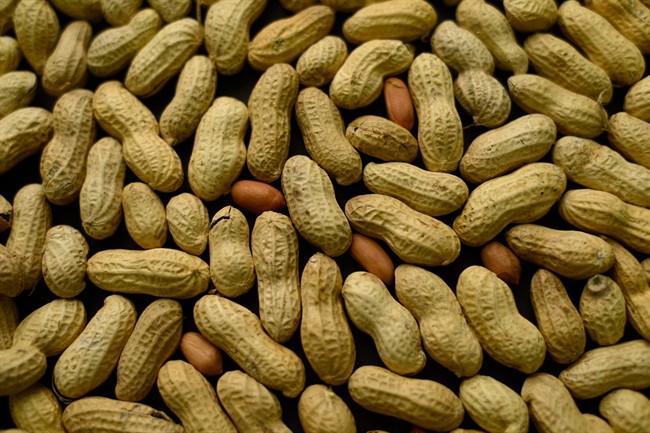The first treatment to help prevent serious allergic reactions to peanuts may be on the way. A research company said Tuesday that its daily capsules of peanut flour helped children tolerate nuts in a major study.

Millions of children have peanut allergies, and some may have life-threatening reactions if accidentally exposed to them. Doctors have been testing daily doses of peanut flour, contained in a capsule and sprinkled over food, as a way to prevent that.
READ MORE: Give your baby peanut-based foods early to prevent allergy, guidelines say
California-based Aimmune Therapeutics said 67 per cent of kids who had its treatment were able to tolerate the equivalent of roughly two peanuts at the end of the study, compared to four percent of others given a dummy powder.

Get weekly health news
The study involved nearly 500 kids ages four to 17 with severe peanut allergies. They were given either capsule of peanut flour or a dummy powder in gradually increasing amounts for six months then continued on that final level for another six months.
Neither the participants nor their doctors knew who was getting what until the study ended.
About 20 per cent of kids getting the peanut powder dropped out of the study, 12 per cent due to reactions or other problems.
The results have not yet been reviewed by independent experts but will be presented at a medical meeting next month.
The company plans to file for U.S. Food and Drug Administration approval for the treatment by the end of this year, and for approval in Europe early next year.
At present there are no approved treatments for peanut allergies, which are the leading cause of death from food-induced allergic reactions in the United States.










Comments
Want to discuss? Please read our Commenting Policy first.